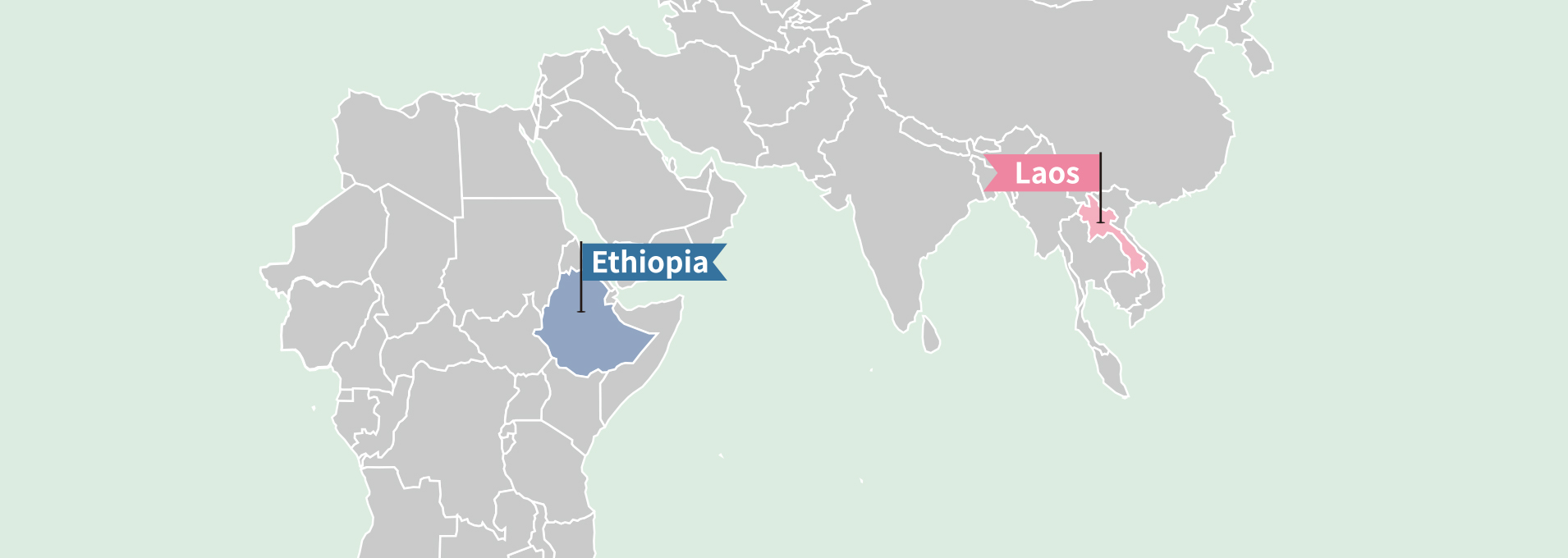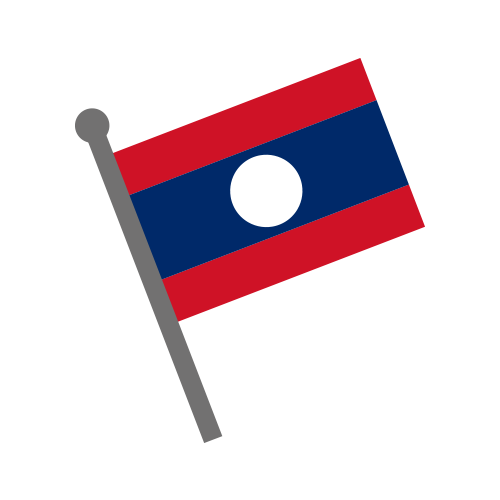본문영역
본문영역

- INSIDE KOFIH
- In the Field
-
KOFIH Laos· KOFIH Ethiopia Office,
taking charge of Dr. LEE Jong-wook
Fellowship Program from A to Z.- Written by_ KIM, Bomi
-
In the era of the COVID 19 pandemic, Dr. LEE Jong-wook Fellowship Program holds significance as it enhances capabilities of health care workers in developing countries.
In this section, we are going to hear stories from staff members at KOFIH local office who are playing important roles in inviting fellows and connecting alumni.
 Laos Souvanhny Souvimon
Laos Souvanhny Souvimon
“I grow up every day with the fellows.”

- - Can you tell us about your roles and duties at KOFIH Laos Office?
- “I am currently a Dr. LEE Jong-wook Program coordinator whose main jobs generally include providing documents for information, application process, administrative duties in national and regional levels while cooperating for Hospital Operation and Management Consulting Project. As Lao is a developing country, Dr. LEE Jong-wook Fellowship program significantly supports to enhance capacities of health workers in provincial and central areas.”
- - Have you noticed any changes when operating the program? Tell us about fellows’ reviews
- “I could see that the alumni have grown as individuals in their professional fields and gained more confidence. They are able to exchange opinions on current issues. They solve problems together and share positive impacts, which they gained from the program, to me and their colleagues.”
- - Tell us about the alumni (who finished the invitational training program) and their activities in their home countries.
- “Most alumni who completed the training course receive medical equipment or translate medical course books to continue their professional career. They contribute to medical activities based on what they have learned from local workshop or training in Korea which is supported by Dr. LEE Jong-wook program’s small grant and KOFIH. For example, Biomedical Engineering course (for safe usage of medical equipment), Nursing course (applying evidence-based practice for improving the quality of nursing education and nursing service), and so on. Especially, KOFIH Laos office brings the alumni from different batches, different courses to come and share their successful stories from the course by holding Dr. LEE Jong-wook Alumni Annual Meeting.”
- - As a project manager, do you think there’s something to advance the program in a more desirable way?
- “In my experience, I could see that most doctors or health workers are busy with their current jobs and sometimes they do not know that candidacy is open. Moreover, as application deadline comes near, sometimes organizations in provincial levels could not approach our program due to late announcement from central institutions and limited date for application. Therefore, a good way to improve is to reach out to organizations in provincial levels by asking MoH to send official invitation and share program information so that we can encourage them to apply or approach some specific departments to have a meeting for more information.”
- - What would you like to suggest that KOFIH headquarter should do?
- “Based on Dr. LEE Jong-wook Program, I hope that headquarter shares more detailed information with local office about fellowship meetings, cultural classes or any other activities about the fellowship. When I got questions from candidates about an overview of courses, I had no information about the circumstances in Korea. In addition to fellowship programs, I would like to have more information about overall life in Korea.”
- - What would you like to pursue for your future dreams as a KOFIH’s activist?
-
“Every day working for KOFIH allows me to grow with the organization’s mission. I would like to pursue my master degree in the near future to grow my professional skills, gained from KOFIH, and to become one of the activists who drive for a better day in my country.”

 Ethiopia Imiru Waqjira Rufa
Ethiopia Imiru Waqjira Rufa
“It is a very unique ODA program that can level up the standard in health care sector.”

- - Can you tell us about your roles and duties at KOFIH Ethiopia Office?
- “As the senior coordinator, my main job in general includes administrative and financial duties for projects such as Maternal, Newborn, and Child Health (MNCH), Health Insurance Policy Cooperation (HIPC), Medical Equipment Management System, and Dr. LEE Jong-wook Fellowship Program. I also communicate with partners, request information to implement projects, and support project coordination.”
- - In the pandemic era, Dr. LEE Jong-wook Fellowship Program might be of great significance.
- “Fellows’ skills are practically utilized in individual institutions that allowed the fellows to participate in Dr. LEE Jong-wook Fellowship Program. These institutions benefit from their skills a lot. As I discussed with the MoH, Dr. LEE Jong-wook Fellowship Program has shown the participants what the “advancement” looks like in the health care sector. In such aspect, Dr. LEE Jong-wook Fellowship is a very unique ODA program that can level up the standard of health care sector as a whole. I hope that fellows are given more opportunities to participate in various programs.”
- - Have you noticed any changes when operating the program?
- “While operating the program, I have seen some changes in the field although it is not easy to observe clear outcomes in a short period. For example, trainees see that the training was useful, and they are utilizing skills while changing their departments. This in turn will contribute a lot to their institutions in the long run. Due to the COVID-19 pandemic, alumni could not gather for joint planning together. However, they are looking for clear directions and guidance to proceed for 2022. I hope that further curriculum can be planned to make strong alumni bondage.”
- - Do you think there’s something to advance the program in a more desirable way?
- “I hope that KOFIH Ethiopia office and KOFIH HQ have a regular joint planning, implementing, monitoring and follow up, and networking opportunities. Based on continuous discussion, the program will advance more to the desired level which is to contribute to the national goal.”
- - Have you learned anything while working for KOFIH? What would you like to pursue for your future dreams?
-
“I learned from KOFIH that the organization is working based on the recipient country’s strategic plan and the country’s needs, and is filling gaps to help the country achieve their goals. In addition to this, KOFIH is flexible in solving implementational programs including fund utilization which is very important. As a KOFIH’s activist, I would like to actively and systematically carry out my duties to succeed further projects. I would like to contribute to the progress of health care sector by designing Strategy Map where partner’s values can be created and improve; and by designing blueprints where our goals and performance measurement are laid out.”


